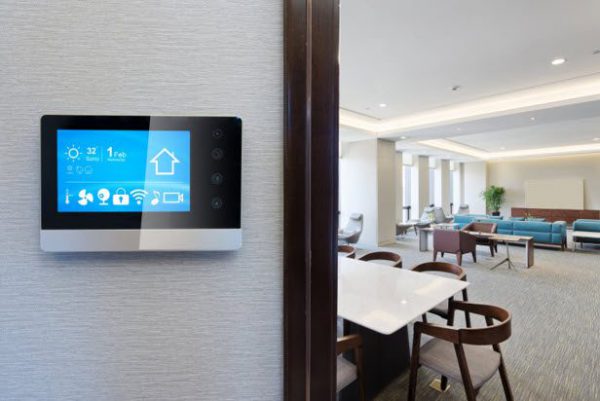Good ventilation and temperature control are essential for employee safety and comfort in any commercial setting and should be of the utmost importance for any business. Heating, ventilation, and air conditioning (HVAC) systems play a vital role in keeping these elements in balance.
However, if not properly maintained, these systems can become a health hazard to workers, from electric hazards like faulty wiring to chemical dangers or respiratory issues. For this reason, it’s crucial to ensure that HVAC systems are the top priority when it comes to overall commercial building maintenance.
In the article below, we’ll explore the specific risks posed by an outdated or poorly maintained HVAC system, the steps that employers can take to ensure their systems are up-to-date and running efficiently, and the benefits of keeping workers safe and comfortable. By understanding the importance of proper HVAC maintenance, employers can ensure their employees are safe and productive in their work environments.
What Risks Does an Outdated or Poorly Maintained HVAC System Pose?
There are several risks that an outdated or poorly maintained HVAC system can pose to employees, including:
- Electric hazards. Faulty wiring is one of the most common hazards associated with outdated or poorly maintained HVAC systems. This type of hazard can cause fires or electrocution (both of which can be deadly) and is often the result of improper installation or maintenance.
- Chemical danger. Many HVAC systems use a variety of chemicals, such as refrigerants and cleaners, to function properly. If these chemicals are not properly handled, they can pose serious health risks to employees, including respiratory problems, skin irritation, headaches, and even cancer.
- Respiratory issues. Poor ventilation can cause a variety of respiratory problems for employees, as they can circulate dust, mold, and other contaminants in the air. These contaminants can cause a variety of health problems, including allergies, asthma attacks, bronchitis, shortness of breath, and even long-term damage to the lungs.
- Poor indoor air quality. In addition to circulating dust, mold, and other contaminants in the air, poorly maintained HVAC systems can also contribute to poor indoor air quality. This, in turn, can lead to a variety of health issues, including headaches, dizziness, nausea, and fatigue.
How to Ensure HVAC Systems Are Running Efficiently
There are several steps that employers can take to ensure their HVAC systems are up-to-date and running efficiently, including:
Schedule Regular HVAC Maintenance Checks
One of the best ways to ensure your HVAC system is running properly is to schedule regular maintenance appointments with a qualified technician. These appointments provide an opportunity for the technician to inspect your system for any potential problems and make any necessary repairs or adjustments, as well as replace old or worn parts.
Most commercial HVAC systems should be serviced at least once per year. However, depending on the age and condition of your system, you may need to schedule more frequent appointments.
Educate Employees on the Proper Use
Another key step in maintaining commercial HVAC systems is educating employees on proper use. Many of the problems that can occur with these systems are the result of improper use. For example, if employees regularly open windows or doors when the system is running, they can cause the system to work harder than necessary, which can lead to wear and tear.
Employees should also be aware of the importance of reporting any problems with the system as soon as possible. By catching potential issues early, you can avoid more serious and expensive repairs down the road.
Invest in Regular Upgrades
Finally, it’s important to invest in regular upgrades for your Heating, ventilation, and air conditioning system. As technology advances, new and improved Heating, ventilation, and air conditioning systems are constantly being released. While it may be tempting to stick with your existing system in an effort to save money, upgrading to a newer model can provide significant benefits.
Newer Heating, ventilation, and air conditioning systems are often more energy-efficient than older models, which can help reduce your business’s overall energy costs. Additionally, these systems often include features that can improve employee comfort and safety, such as better temperature control and air filtration.
The Benefits of Maintaining Commercial HVAC Systems
There are many benefits to maintaining commercial Heating, ventilation, and air conditioning systems, both for employees and employers.
Perhaps most importantly, regularly scheduled maintenance can help prevent health hazards in the workplace. Inadequate ventilation can lead to a build-up of carbon dioxide and other harmful gases, while poor temperature control can cause extreme heat or cold conditions that can lead to serious health problems.
In addition to promoting employee safety, proper Heating, ventilation, and air conditioning maintenance can also improve worker productivity. When employees are comfortable in their work environment, they’re more likely to be productive and motivated.
Additionally, regular Heating, ventilation, and air conditioning maintenance can help extend the lifespan of your system, saving your business money in the long run.
In Conclusion
Maintaining commercial HVAC systems is essential for promoting employee safety, comfort, and productivity in the workplace. These systems play a vital role in keeping ventilation and temperature levels in balance, but if they’re not properly maintained, they can become a health hazard.
By taking steps to ensure your Heating, ventilation, and air conditioning system is up-to-date and running efficiently, you can avoid potential health risks and keep your employees safe and comfortable. Good luck!


